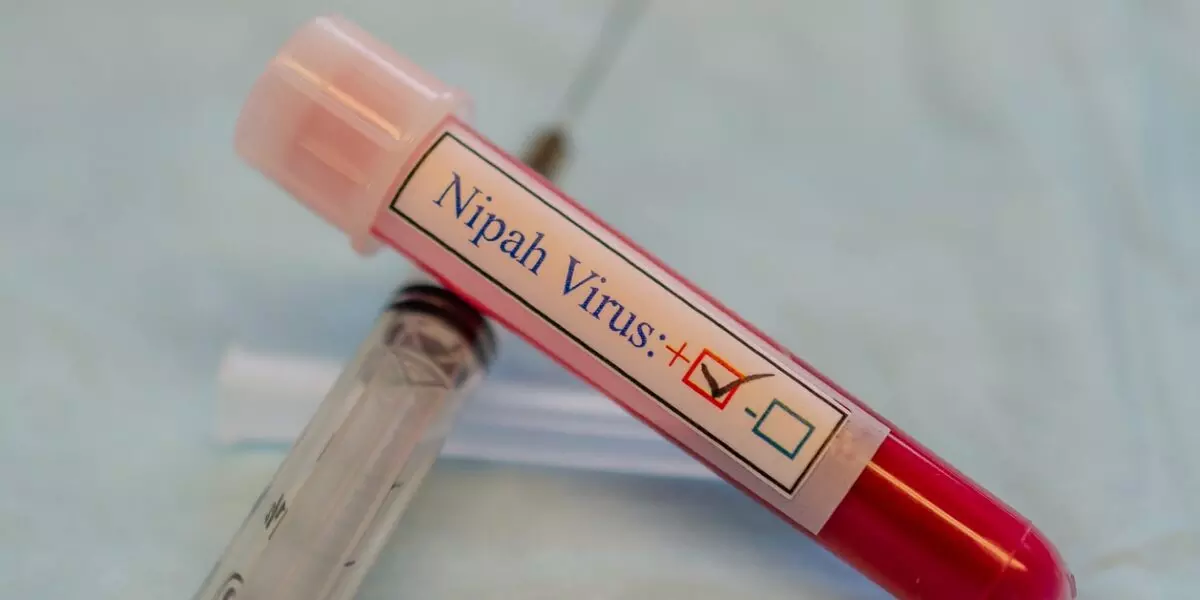
Nipah outbreak: High-risk contact dies in Kerala, 482 under surveillance
text_fieldsMalappuram: A woman identified as a high-risk contact of a recently deceased Nipah-positive patient has died at a government hospital near Malappuram, intensifying health concerns in Kerala. The woman had been admitted to the same hospital ward as the earlier Nipah victim, prompting authorities to treat her as a potential secondary infection case.
In response to her death, the Kerala health department has directed the woman’s family to postpone her funeral rites until the final test results from the National Institute of Virology (NIV), Pune, are received. The precautionary move follows established containment protocols in light of the state’s heightened Nipah virus surveillance.
Meanwhile, another Nipah-positive patient remains in critical condition at the Kozhikode Medical College and Hospital. This patient is from Palakkad, where officials have declared a three-kilometre containment zone around the residence. Surveillance teams are conducting house-to-house monitoring and gathering retrospective health data from the past six months. Veterinary teams have also begun inspections in the area to trace potential animal transmission sources.
Nipah virus, first identified in Malaysia in 1999, is a deadly zoonotic disease known to cause acute encephalitis and severe respiratory issues. The virus is highly fatal and is primarily transmitted from animals to humans, especially via fruit bats—commonly known as flying foxes. The infection can also spread through contaminated food or through human-to-human contact with bodily fluids or contaminated surfaces.
Kerala has witnessed six Nipah outbreaks since 2018, beginning with the initial outbreak in Perambra, Kozhikode. Since then, the virus has claimed 17 lives in the state, making it the most Nipah-affected region in India.
Currently, 482 individuals are on the Nipah contact list across Kerala. This includes 192 people in Malappuram, 114 in Kozhikode, and 176 in Palakkad. Health authorities across these districts remain on high alert, intensifying containment and surveillance efforts to prevent further spread.
With IANS inputs






